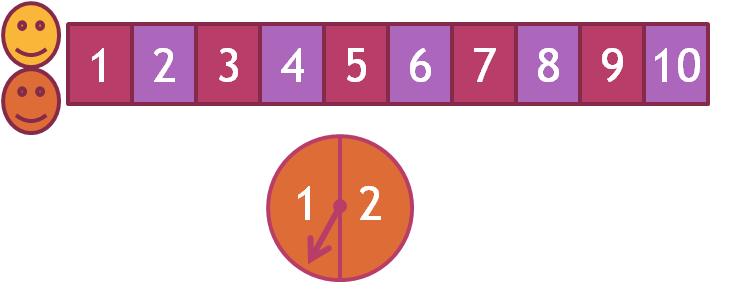Every individual has their own beliefs about the best way to teach. How do they know that their beliefs are correct, though? Is it possible to support your beliefs with more valid evidence than just that you believe it to be true, it is true from your personal experiences, or that an expert said that it is true? Sometimes two people have two opposite beliefs, so is it possible to determine which person is right? For example, some individuals think that pupils should be given constant positive encouragement to improve academic achievement. On the other hand, other individuals think that positive encouragement will decrease academic achievement because a pupil will think that they do not need to keep putting forth effort. These are two opposite beliefs, so which is true?
Educational research is the answer to all of the above questions. Educational research uses the scientific method to study best practices in teaching. An educational research study can be conducted to answer the question: Will students learn better or worse when they are given positive encouragement? To do this, the scientific method will be employed to compare a group of students who are given positive encouragement with a group of students given negative criticism and a control group of students given no encouragement. After receiving positive encouragement, negative criticism, or no encouragement, individuals in these groups will then be compared on important dependent learning variables such as their performance, effort, and motivation. Once this has been done, the data will provide a definitive answer about whether positive encouragement, negative criticism, or no encouragement results in the best academic performance. Educational research that uses the scientific method to collect scientific data can provide a definite answer about best practices in teaching.
The purpose of educational research is to develop new knowledge about the teaching-learning situation to improve educational practice. Educational research can address the following variables:
By collecting scientific data about these important topics in education, educational research can establish the best practices that teachers, counselors, administrators, and students should use to improve learning outcomes. Therefore, educational researchers - particularly researchers in Nigeria - should focus on practical research projects that will have significant implications for education.
For example, Siegler & Ramani (2009) conducted a research study to examine best practices of teaching number skills to young children. Maths teachers typically teach number skills by asking pupils to recite the number string (e.g., "Say after me: 1, 2, 3..."), count objects (e.g., "How many beans are there?"), and name numerals (e.g., "Which number is written on the board?"). However, Siegler and Ramani looked at a theory of how young children understand number and thought that they could come up with a better and more engaging method of teaching number skills. They developed a number game that might look something like this:

The game simply requires a piece of paper with the numbers 1 to 10 written across it, two markers (the smiley faces - these can be bottle caps), and a spinner with the numbers 1 and 2. (Alternatively, the numbers 1 and 2 can be written on pieces of paper and put into a cup). To play the game, the players take turns spinning the spinner (or pick a number from the cup) and move their marker that many spaces, naming the numbers they land on. ("I am on the number four. I picked the number two. I move five, six."). Children at a school were randomly placed in either a traditional maths group or the game group. Children in the traditional maths group received normal maths instruction whereas children in the game group played this game. Both groups spent an equal amount of time studying mathematics. After a few weeks, all of the children were tested on their maths skills. These researchers found that on average, children in the game group performed better than the traditional group in maths estimation, comparing numbers, and arithmetic! Siegler and Ramani found a better and more engaging way of teaching maths, and they have scientific evidence based on the children's maths test scores to support that their way of teaching is more effective than the traditional method. They can conclude that teachers who use this game to teach number skills will help their students do better in mathematics.
If you are conducting an educational psychology research study, then your topic will be primarily focused on individuals in an educational context. The purpose of psychological research is to study key variables about a human being: how they behave, think, feel, believe, etc. As such, psychological research must examine individual characteristics, not group structures. Therefore, an educational psychology study will examine student performance, student motivation, student attitudes, student beliefs, teachers' knowledge, etc. However, an educational psychology study will not examine school-level variables, such as school facilities, government funding, etc.
Whatever type of educational research you are pursuing, though, recall that the purpose of educational research is to improve educational practice. Having an understanding of educational research and conducting high quality educational research can have the following benefits for educational practice:
Because educational research can have significant implications for the teaching-learning situation, it is essential that educational researchers complete their research projects in good faith. Poorly conducted research can cause further harm to the educational process than no research at all. Consequently, under no circumstances should an educational researcher "cut corners" to get their project completed faster or easier. Educational researchers also have a responsibility to check and double check their work to ensure that their methods are valid, their calculations are correct, and their conclusions accurately reflect the data that has been collected. Careful, thoughtful, and trustworthy research can go a long way in improving education in Nigeria.
Reference
Siegler, R. S. & Ramani, G. B. (2009). Playing linear number board games - but not circular ones - improves low-income preschoolers' numerical understanding. Journal of Educational Psychology, 101, 545-560.
Return to Educational Research Steps
Copyright 2012, Katrina A. Korb, All Rights Reserved